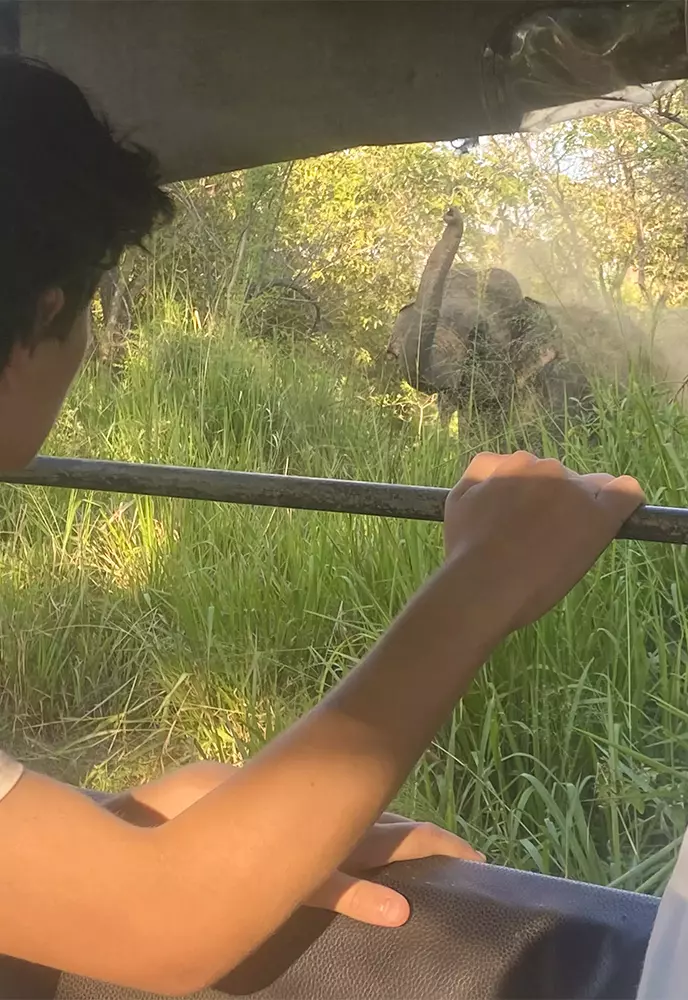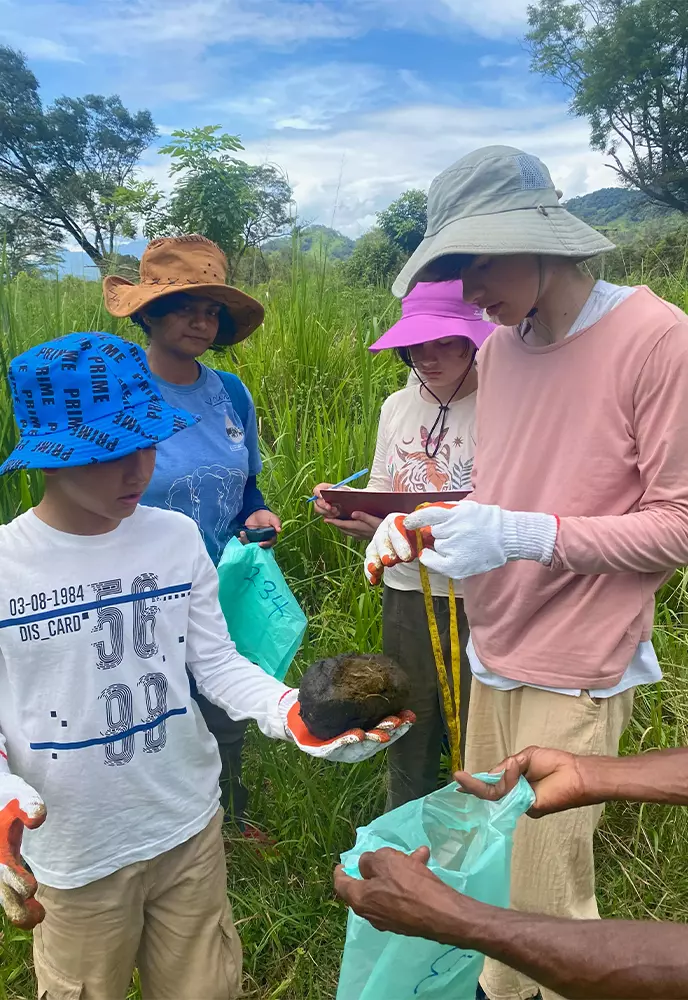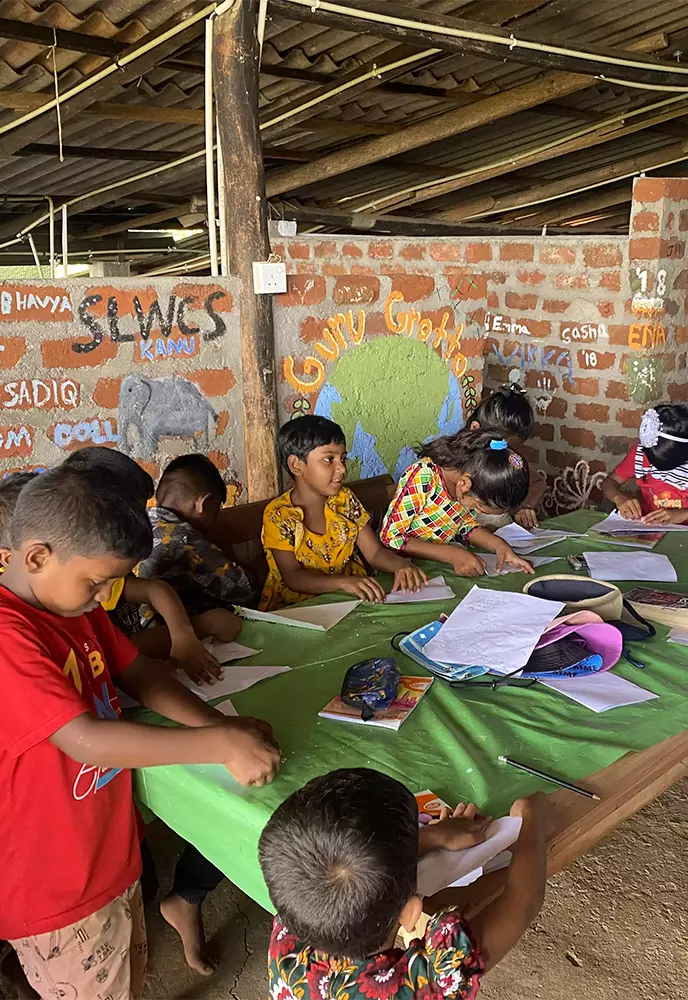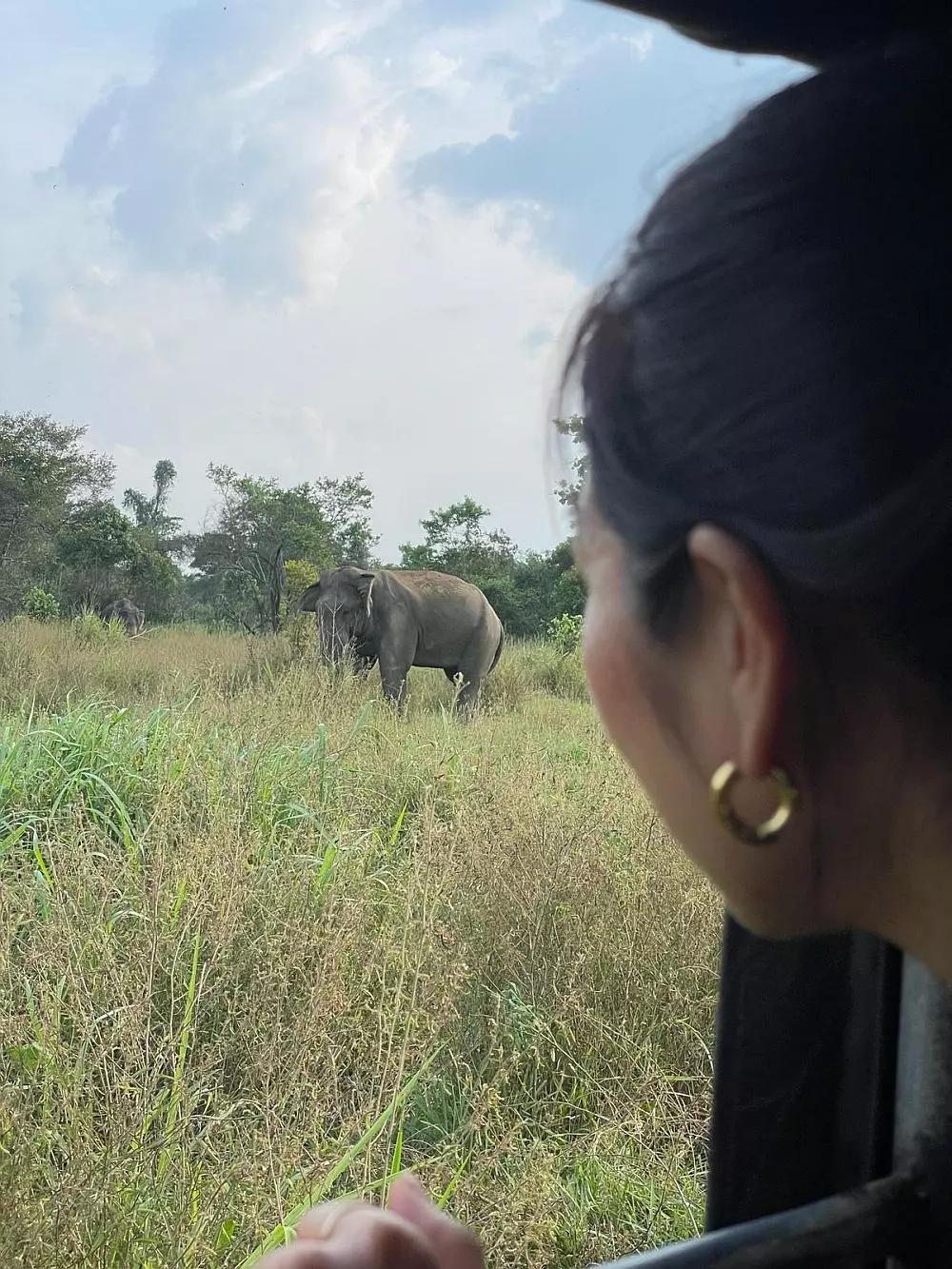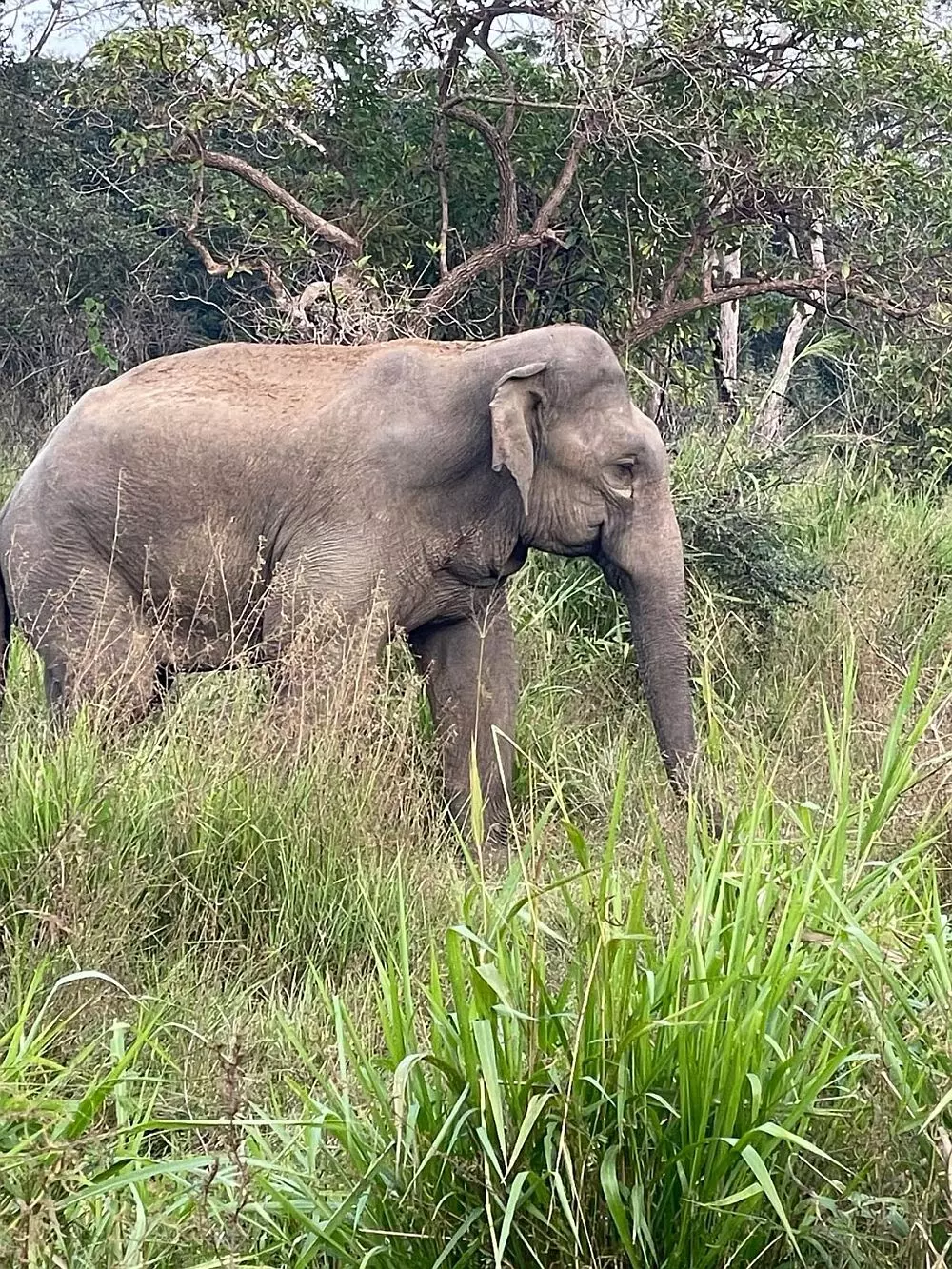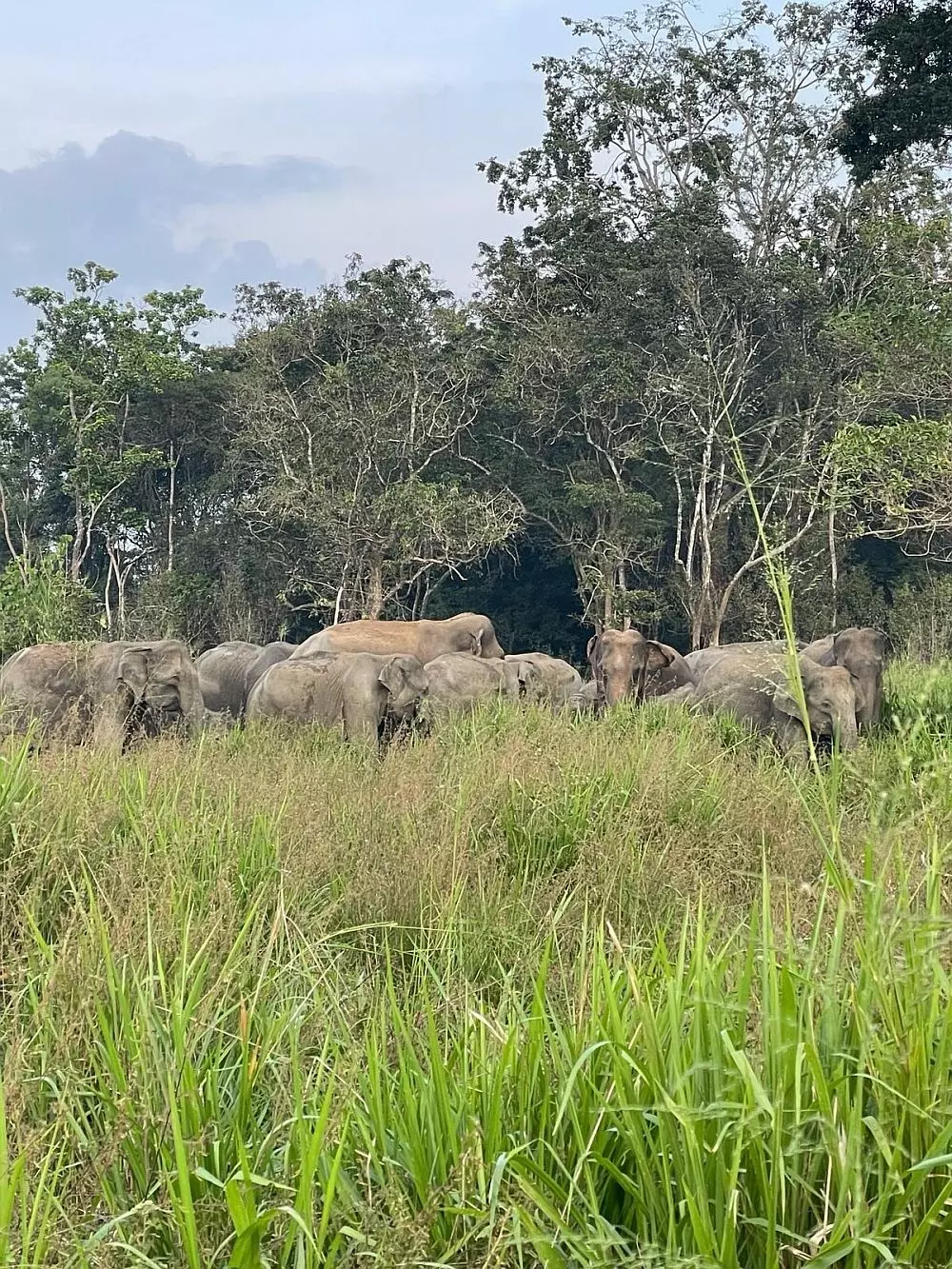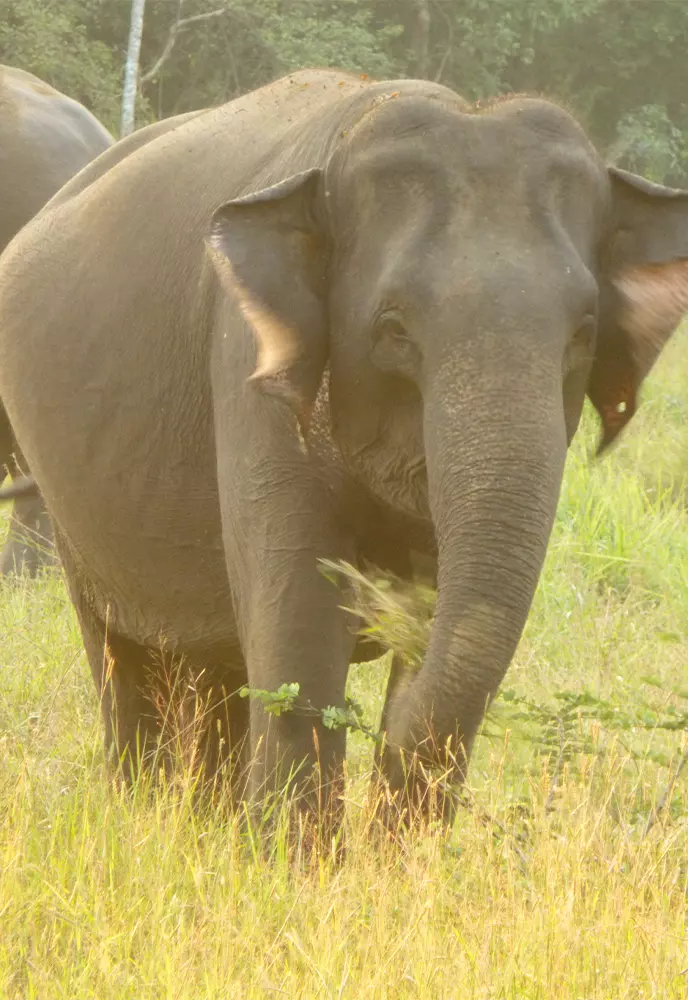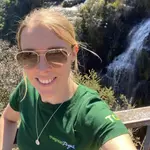

The Great Elephant Project
Encounter the beautiful Asiatic elephant deep within the heart of the Sri Lankan jungle!
Speak To A Travel Expert
Activities
The following are some of the activities you may get involved in while volunteering with elephants in Wasgamuwa. You may not take part in all of these activities as they are dependent on the requirements of the project at the time you are volunteering and also on your length of stay. Looking to volunteer as a family? Take a look at The Great Elephant Project - Family Programme.
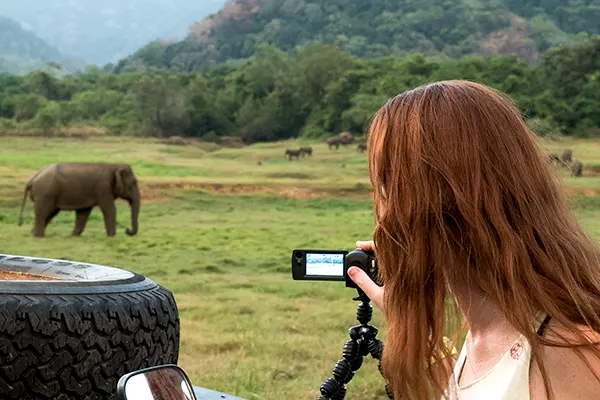
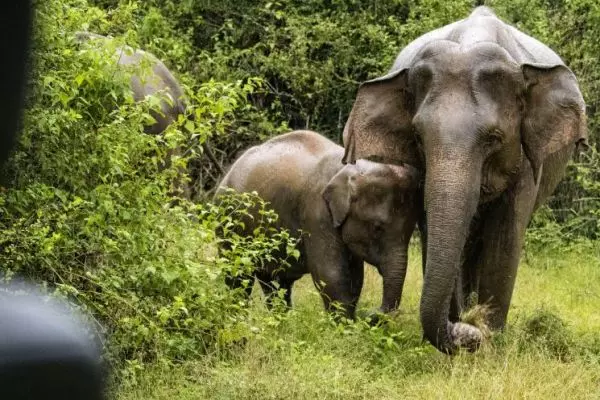
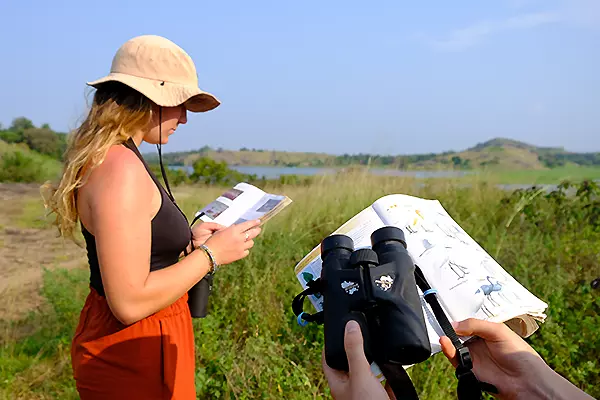
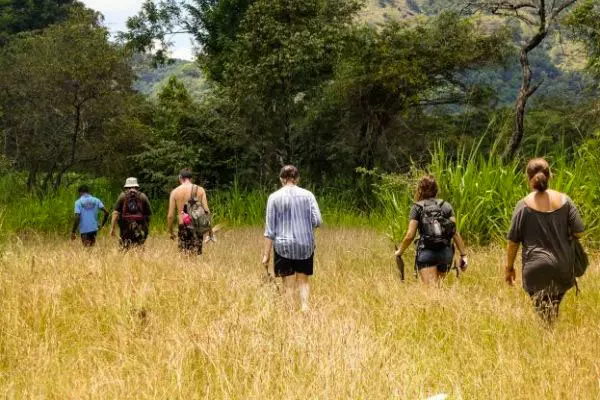
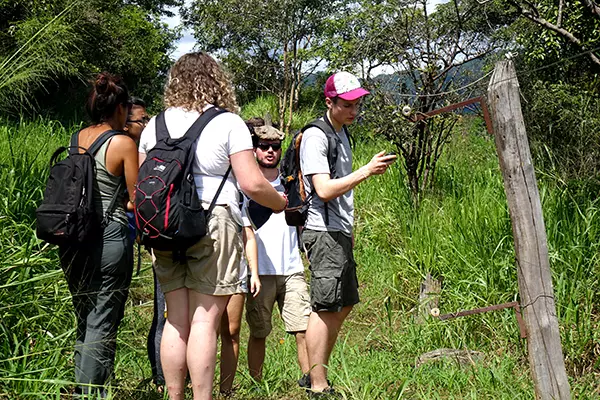
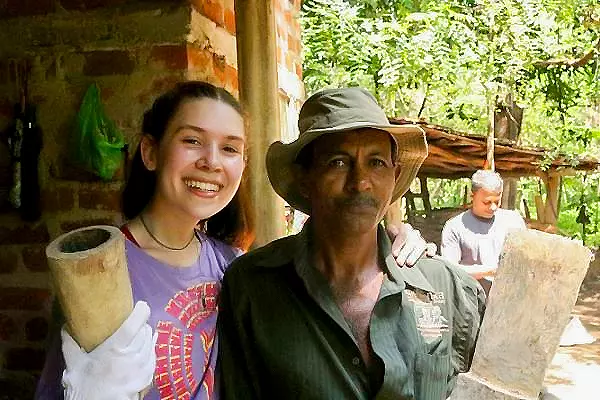
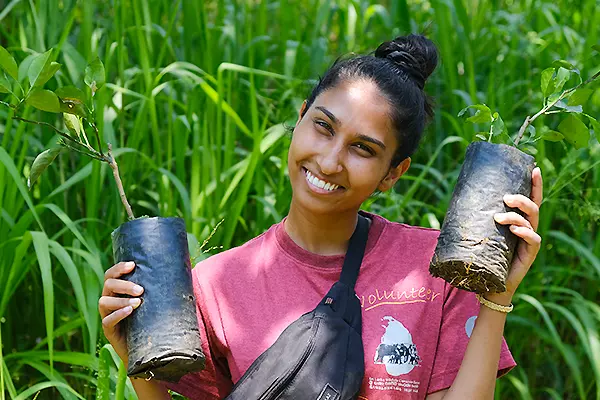
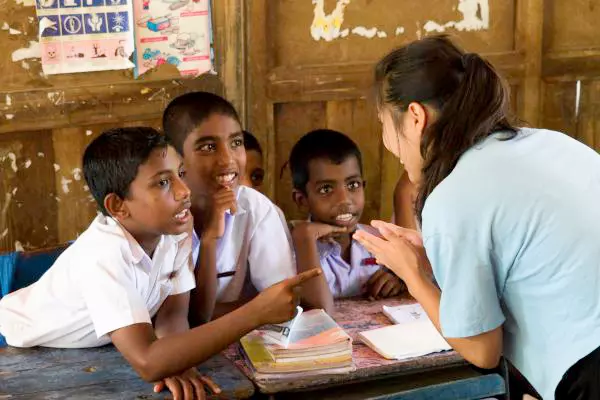
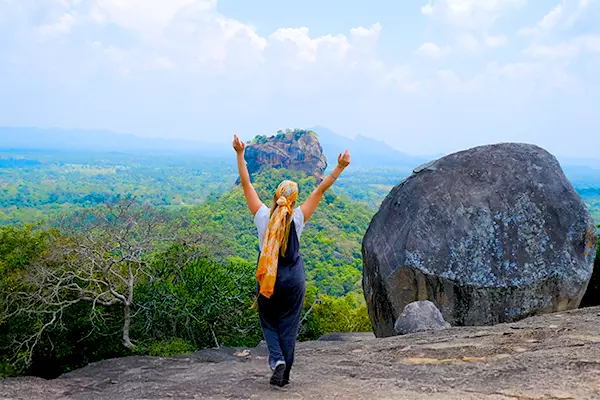
Itinerary
The itinerary below is an example of a two-week stay at The Great Elephant Project and is subject to change. Please be advised that although we are able to offer an 8-night option, a minimum duration of 15 nights is recommended for a more in-depth experience. If you take part for only 8 nights, there is no guarantee that you will be involved in all the activities listed.
Durations & Prices
Accommodation
Volunteer Accommodation
Whilst on the project, you will stay in a rustic field house which can accommodate up to 30 people. The accommodation is basic yet authentic, offering views of the surrounding area through partitioned walls and a high roof. The design of the house is ideal for Sri Lanka’s climate, allowing air to pass through and keep the building cool, whilst still keeping you sheltered in the event of rain.
There are several rooms which are shared amongst volunteers on a same-sex basis, with enough bunk-beds in each room to accommodate between 8-16 volunteers at a time. Rooms are complete with electric fans, mosquito nets, pillows and clean bed sheets, while the bathrooms, which are also split by gender, have western-style toilets and cold showers. The water pipes are exposed to the sun during the day, so showers may at times run warm, but please do not arrive with this expectation.
Accommodation Upgrade
If you're looking for a little extra luxury during your stay, there is an option to upgrade to a nearby modern hotel. This hotel offers stunning views, a pristine swimming pool, and spacious rooms. You have the option to choose a single room at an additional cost of $438 per week or a double room at $525 per week. All rooms have river views, are air-conditioned, feature ensuite bathrooms, and have access to free Wi-Fi. A member of the project staff will provide daily pick-up and drop-off services. If you're interested in upgrading, please reach out to the travel team.
Meals & Beverages
Three fresh meals are provided on each day of the project and are prepared by members of staff who live in nearby villages. Food is prepared in the local style, using a range of spices, but if you would prefer a little less heat there is always a plain option available. Most meals will be vegetarian, consisting of rice, bread and dhal, while fish and chicken dinners are available once or twice per week. Fruit is also available and you will find British-style tea and ground coffee here too. A kettle, toaster and fridge-freezer will be available for you to store extra snacks and drinks in. (Please note, while alcohol is not permitted during the working week, you are welcome to purchase alcoholic beverages from the local shop or liquor store to enjoy on a Friday or Saturday evening.)
Project Details
When Is The Best Time To Volunteer?
While elephant and other wildlife sightings, and all volunteer activities occur year-round, there are a few factors that may guide your choice of which month to travel.
November to March sees the bird migration period, so those who wish to spot some of Sri Lanka’s incredible bird species may wish to volunteer then. If it’s culture you’re after, then April to September is an excellent time to visit due to the Sinhala New Year taking place (April) and two of the largest Buddhist festivals, the Wesak and Poson festivals, happening in May. The Esala Perahera (the Temple of the Tooth celebration festival) falls in August and can be observed in nearby Kandy.
As for the weather, the most pleasant months fall between January and May, with January being the coolest month of the year and April the warmest. There are two annual monsoons in Sri Lanka, with the Yala monsoon bringing rains between May and August, though this is mostly in the southwest of Sri Lanka. The Maha monsoon falls between October and November and affects most of Sri Lanka, with October being the wettest month of all. That said, volunteer activities will take place come rain or shine, and some fantastic sightings still take place during the monsoon season.
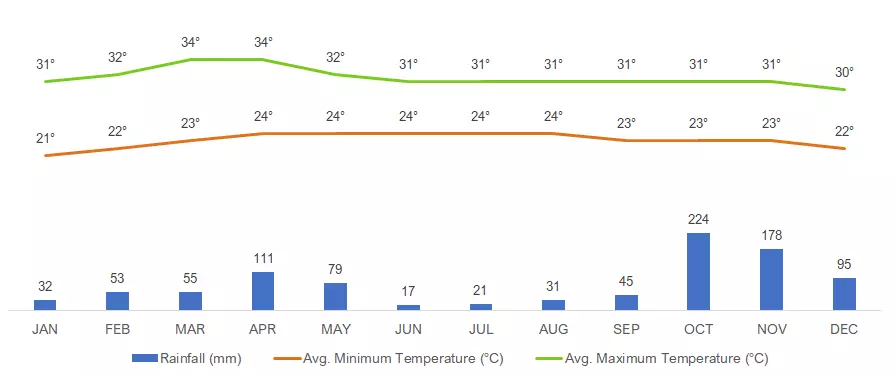
Getting There
You will need to arrive in Colombo on a Sunday, where you'll be met at the airport and transferred to a hotel in Ambepussa where you'll spend your first night. The following morning (Monday) you will be met at your hotel at 6am by a member of the team and be transferred by a private vehicle to the project site. Please note, departure transfer is not included but can be arranged for an additional fee.
Visa Requirements
All visitors to Sri Lanka require a visa. Short-stay visas of up to thirty days can be obtained online via the Electronic Travel Authority, and can be extended for up to three months at the Department of Immigration and Emigration in Sri Lanka. Please note, your passport must be valid for at least six months from the date you arrive into Sri Lanka.
Fitness & Skills
This project does not involve much in the way of physical labour, but you will usually be working in fairly humid conditions. Therefore, all volunteers should have a basic level of fitness when taking part. No specific skills or experience are required, just commitment to the project and its aims. You must be prepared to work alongside other members of the team, and to bring an upbeat, positive attitude to the endeavour as a whole.
Vaccinations
The vaccinations required will depend on your medical history. We recommend that you consult with your GP regarding your own immunisation needs. In conjunction with this, we would also recommend that you check Fit for Travel’s website.
Videos
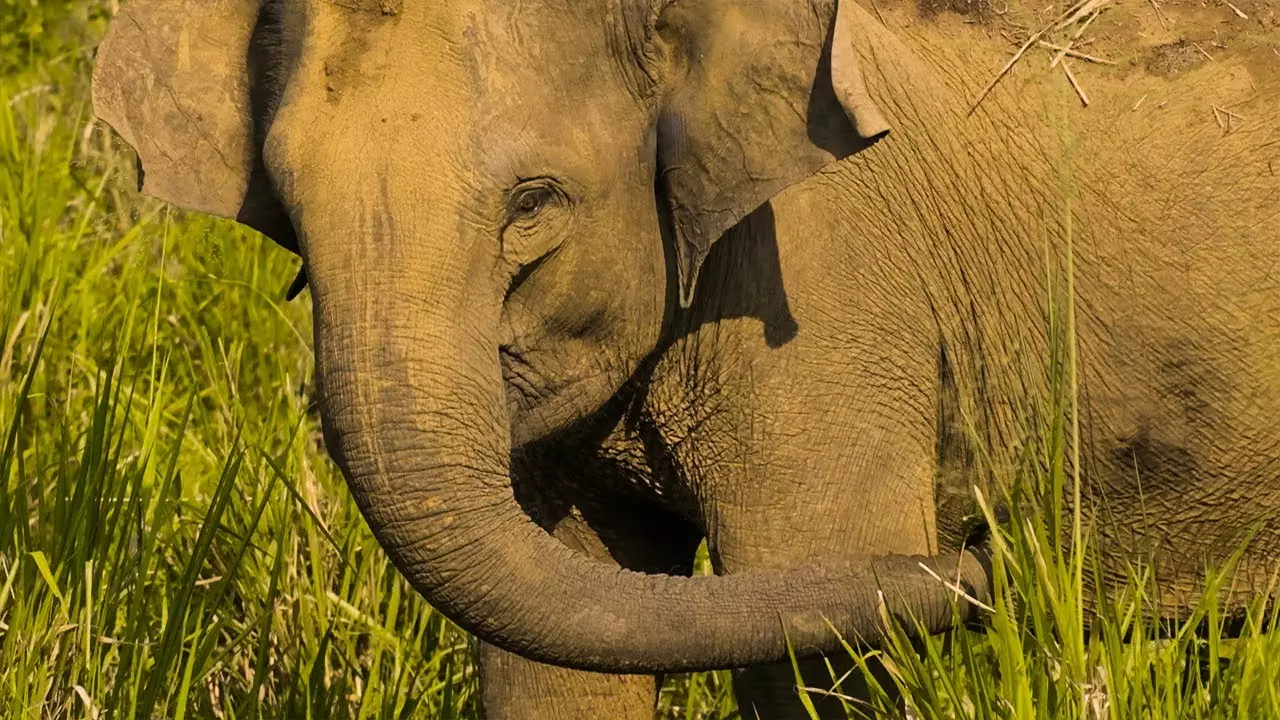
Discover The Great Elephant Project
See what your life as a volunteer could be like at The Great Elephant Project in Sri Lanka - A project that works closely with Asian elephants and the local farming community to reduce human-animal conflict around the wildlife-rich Wasgamuwa National Park.
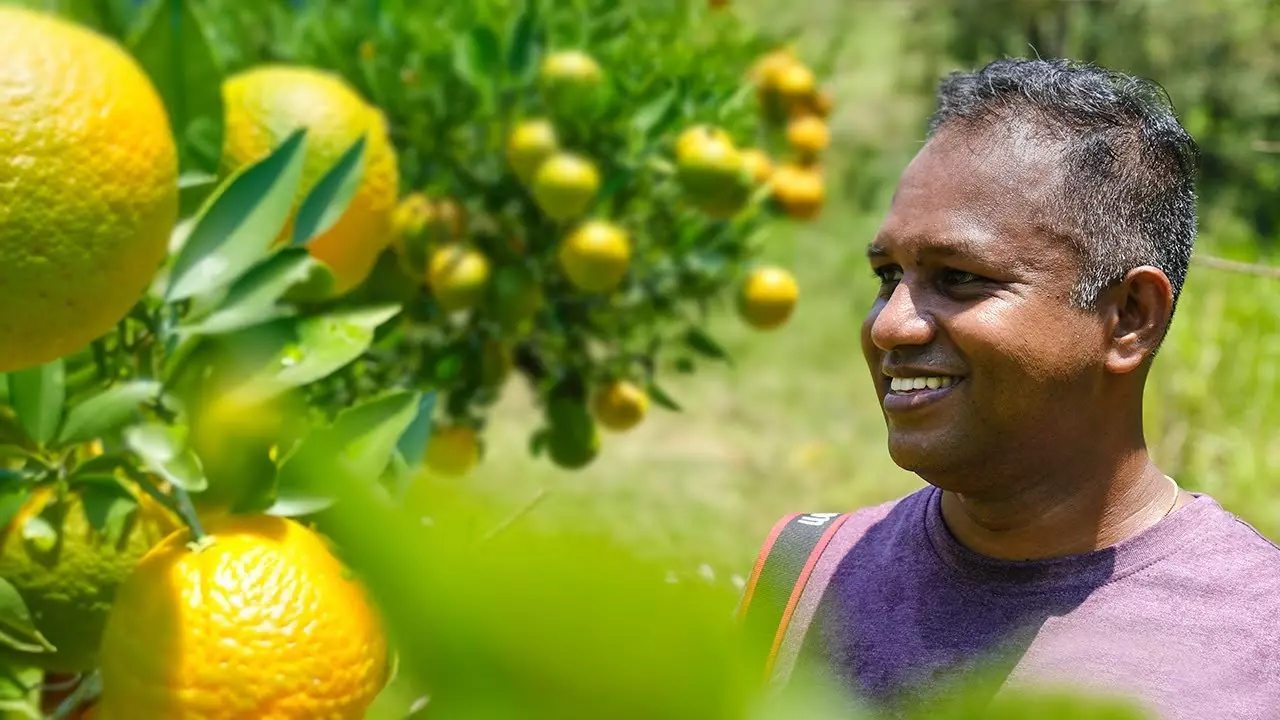
Project Orange - Tackling human-elephant conflict
Operations Manager of The Great Elephant Project, Chinthaka, explains how volunteers actively contribute to mitigating human-elephant conflict in Sri Lanka and support local communities through the cultivation of orange trees.
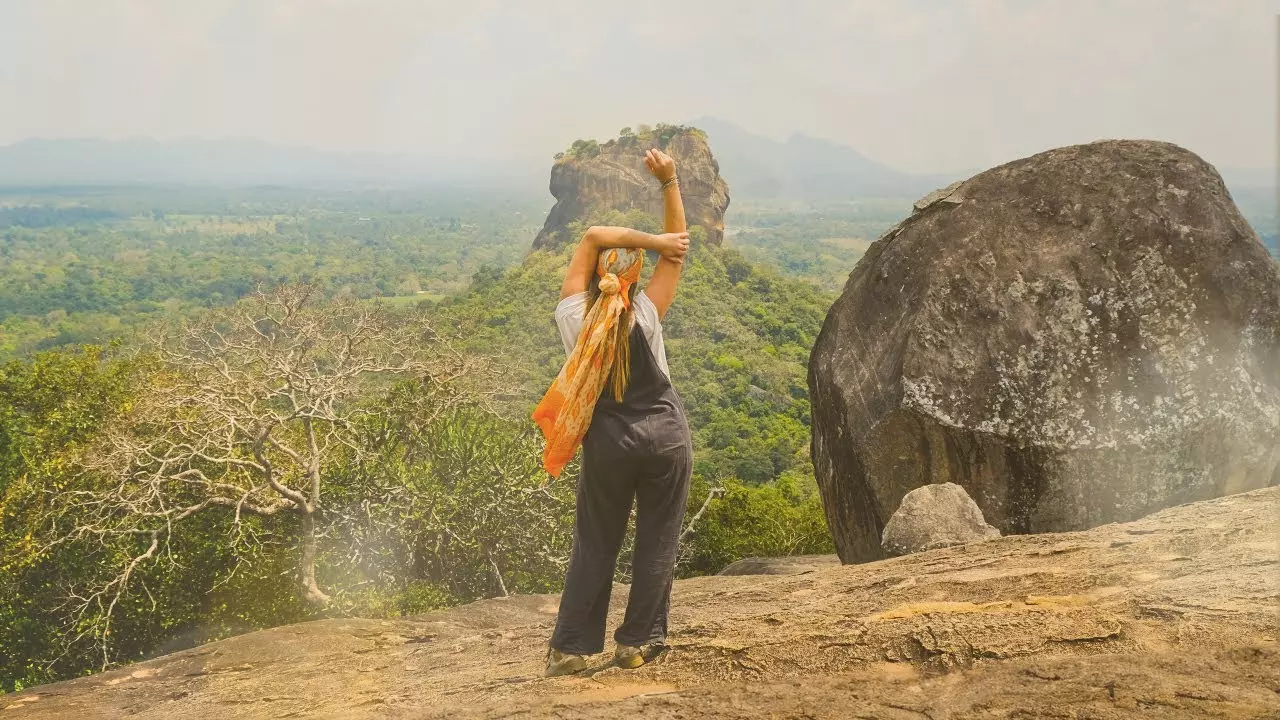
Weekends at The Great Elephant Project
With weekends free, you can explore iconic landmarks in the cultural triangle including Sigiriya Lion Rock, Pidurangala, and the Dambulla Cave Temple.
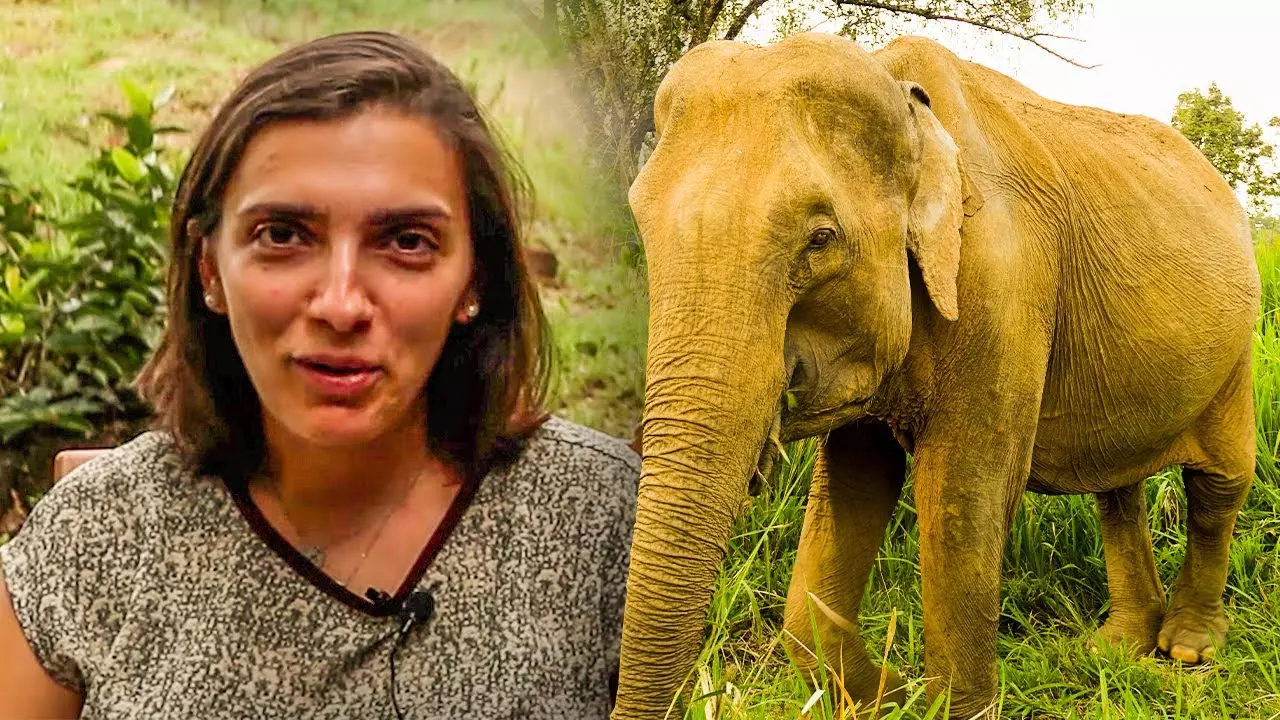
Filipa's Experience Of The Great Elephant Project!
Check out how Filipa found her experience of volunteering on The Great Elephant Project! From wild elephants to lifelong friends, see it all here.
Gallery
News & Stories

Recent Volunteers Explorations!
UPDATE | Dec 2024
Recent volunteers enjoyed the natural beauty of the lake bordering the Field House on a serene boat trip and explored the Knuckles Mountains while participating in a butterfly survey.

Desy's Herd Returns to National Park
UPDATE | Nov 2024
The team was thrilled to see Desy's family herd back in the park after two weeks. Spotting familiar elephant groups adds incredible value to the team's research, enriching their understanding of elephant habitat use and movement patterns.

Elephant Herd Sighting Using the Elephant Corridor
UPDATE | Sep 2024
Volunteers are frequently blessed with seeing the elephant herds using the ancient elephant corridor, which they have used for millennia. The Great Elephant Project team said, "It is an incredible feeling and a fantastic sight to see large herds of elephants patronizing the Elephant Corridor peacefully and without conflicts with people... This is why the continuous monitoring of the corridor and your support is crucial for its conservation!"
Reviews
What an amazing week we had at The Great Elephant Project in Sri Lanka!! We learnt so much about elephants, birds and butterflies and the kids learnt about scientific data collection and field biology. Every day was something different and we enjoyed every activity, even the elephant dung washing :) The kids really enjoyed the Awareness Program with the local kids and we all loved meeting other volunteers at the project of different ages and nationalities. The local project team were amazing.... they are fun, friendly and very knowledgeable! We loved spending time with them, particularly while waiting for sightings of elephants. On our last day, we waited for about an hour and a half with no sightings at all, until we spotted a herd of over 50 elephants and one male elephant who got super close to the jeep. It was so worth the wait!!! We will be back again for sure.....we miss the nature, the people and the delicious food :) Thank you for an unforgettable experience!!
We’ve stayed 1 week and had amazing meaningful time there. It was for us first Volunteer and was so interesting to learn about the situation between humen and elephants. Specially we are very interested in visiting farmers and talked with them. So that we could see the problem in real-time and understand the situation and think the solution. First day we’ve asked the farmers about orange trees that Project Team has previously planted. Second day we’ve visited farmers to ask when was the last time that elephant came and how many damage have they got. We also did Butterfly Survey which was so fun to learn species of Butterfly. All the activity during the week was so gut organized and we could learn so many things. Staffs in Fieldhouse are very kind and welcomed. We would like to special thanks to Charuga who mostly lead our Team during our stay and taught us nature of elephant, ecosystem, history of this project, but also big thanks for all the Teammember and Chefs who make us so delicious meals! We are very thanksful that we could participate in this project and we hope that we can come back one day!
Are you passionate about Asian elephant conservation? Or perhaps you're looking for an off-the-beaten-track Sri Lankan experience? Then look no further than The Great Elephant Project! I was there for two weeks and had an absolute phenomenal time! The staff were brilliant and my co-volunteers were great! The work routine is very easy to settle into and the tasks themselves weren't very strenuous. I participated in many jobs, including interviewing the local villagers on their human-elephant conflict experiences, exploring the jungle, tracking Asian elephants in their natural habitat (sometimes on foot), and conducting butterfly surveys in the nearby farmland. The work being done at this place is making a huge positive difference towards the preservation of Asian elephants in Sri Lanka and I was really proud to be involved.
What's Included
- Accommodation
- Arrival airport transfer and accommodation in Ambepussa
- Transfer from Ambepussa to the project site
- Three meals per day
- Full orientation and support from the project managers
- A contribution to the project
What's Not Included
- Flights
- Travel Insurance
- Departure airport transfer





































